Exit Comes as MSNBC Prepares to Be Spun Off
Alcindor, Insulted by Trump, to Cover Him Again
Cuba to Free 533 After Biden Moves for Deal
. . . Decision Is Called ‘Bittersweet’ (in Spanish here)
L.A. Times Owner Regrets Endorsing Karen Bass
From Jan. 13:
Trotter Retires After Speaking ‘Truth to Power’:
Sportswriter Cites ‘Personal,’ ‘Professional Factors’
NABJ Leaders Begin to Talk About Anti-DEI Gains
NABJ Board Votes to Lower-Case ‘White,’ ‘Brown’
Writers Note Racial Factors in Panama Canal Threat
Zuckerberg Continuing a ‘War Against Journalism’
Globally, 54% See Inequality as ‘Very Big Problem’
Bean Pies Make Chicago Tribune Food Pages
The Changes Media Must Make to Cover Trump 2.0
Reporters Urged to Focus on Gun Violence Survivors
‘Bad Bunny Wants to Read You the News’
Authorities Suspend Al Jazeera Yet Again
LGBTQ-Friendly Site to Close, but ‘Black Joy’ to Stay
D.C.’s Derrick Ward Dies, Reported on His Hometown
Short Takes: “Black Journalists Will Figure in Carter’s Legacy” — the conversation; closing of Univision Portland; NPR-Religion News Service partnership; net neutrality setback; Simone Biles; Sia Nyorkor; Bobby Caina Calvan; Angela Pace; Francine Pope Huff; subsidizing photojournalists; Military Veterans in Journalism and NAHJ; Tina Griego and Tracy Jan; Alicia Montgomery; media projects on Black men; “PBS News Hour” on aid to sub-Saharan Africa; cartoonists in jeopardy; danger for press in Latin America.
Homepage photo credit: NBC
Support Journal-ismsDonations are tax-deductible.
Rashida Jones speaks to the importance of networking among Black executives last year at a CNBC forum. (Credit: YouTube)
Exit Comes as MSNBC Prepares to Be Spun Off
Rashida Jones, who broke a glass ceiling in 2020 when she was named president of MSNBC, is stepping down, while elsewhere at NBCUniversal, Yamiche Alcindor, demeaned by Donald Trump as she covered his first term in the White House, is returning to the Executive Mansion as part of NBC’s White House reporting team.
Jones is stepping down as the network prepares to be spun off from Comcast along with other cable channels.
“After four incredible years at the helm of MSNBC and 11 years at NBCU, I have made the decision to pursue new opportunities,” Jones said in a memo to employees Tuesday.
“Jones shared the news of her departure . . . with top MSNBC anchors on Tuesday morning,“ Oliver Darcy reported for his Status newsletter. “She then addressed staffers during the network’s daily editorial meeting, during which she was greeted with a standing ovation.”
Jones said that Mark Lazarus, “who is leading the spun off cable assets, asked her to stay on during a transition period,” as Ted Johnson reported Tuesday for Deadline.
“I came to this decision over the holidays while reflecting on our remarkable journey and the many successes we’ve achieved together as a team,” Jones wrote. “This has been the most rewarding chapter of my professional career and I am immensely proud of what we have accomplished, which has been made possible only by you.”

At a 2023 NBCU Academy “Next Level Summit” led by the NBCU News Group’s Diversity, Equity & Inclusion team. From left: MSNBC President Rashida Jones; NBC News anchor Lester Holt, who moderated; Karen Irwin, president and COO of Universal Orlando Resort; Val Borland, executive vice president of content acquisitions for NBCU’s TV and Streaming; and Karen Barroeta, executive vice president of production and development for Telemundo Enterprises. They discussed how their work centers around storytelling. (Photo credit: Bryan Bedder/MSNBC)
Alex Weprin reported for the Hollywood Reporter, “A veteran NBC News and MSNBC executive, Jones took over the channel in early 2021 at a pivot point, succeeding its longtime president Phil Griffin (Griffin currently runs MSNBC star Rachel Maddow’s production company). She pushed MSNBC to diversify its business beyond TV programming during her tenure, including a substantial investment into podcasts, documentary films, and more recently into live events.
“It was during her run that Maddow scaled back from hosting five nights per week to one in order to build more digital extensions for the brand (on Monday, MSNBC announced that Maddow would return — temporarily — to five nights per week). The channel also solidified its linear ratings lead over CNN, though a post-election viewership drought set in after Trump’s reelection.”
Lazarus wrote, “Rashida has expertly navigated MSNBC through a years-long, unrelenting and unprecedented news cycle, all while driving the network to record viewership and making investments in nonlinear businesses, MSNBC is well-positioned for the future, and I am grateful that she will continue to support us during this transition.”
While its overall viewership has fallen since the election, MSNBC has been able to boast that its “programming attracts the most diverse cable audience in America
“In 2023, MSNBC was the #1 network across all of cable among Black viewers for the 6th consecutive year and in Asian viewers,” a spokeswoman said in December 2023. “Among Hispanic viewers, MSNBC was #1 across cable news and #2 across all of cable (behind ESPN).
“MSNBC is home to the Top 20 highest-rated cable news programs among Black Americans. MSNBC’s ‘PoliticsNation with Al Sharpton‘ had the highest concentration of Black viewers (41%) of any program on cable news.”
Jones prevailed in a public dispute with Tiffany Cross in 2022, whose show Jones cancelled. More than 40 Black leaders sent Jones a letter of protest.
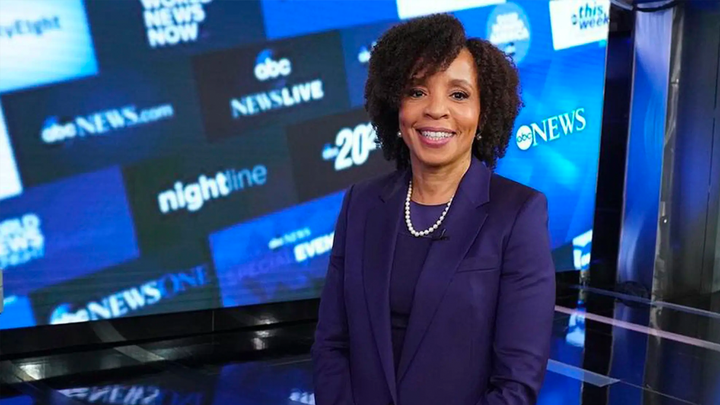 Jones’ 2020 appointment was folllowed a year later by that of Kimberly Godwin (pictured), a veteran of local and national TV-news operations, at ABC News, who became the first Black executive to run a broadcast-network news operation. Godwin resigned last year,
Jones’ 2020 appointment was folllowed a year later by that of Kimberly Godwin (pictured), a veteran of local and national TV-news operations, at ABC News, who became the first Black executive to run a broadcast-network news operation. Godwin resigned last year,
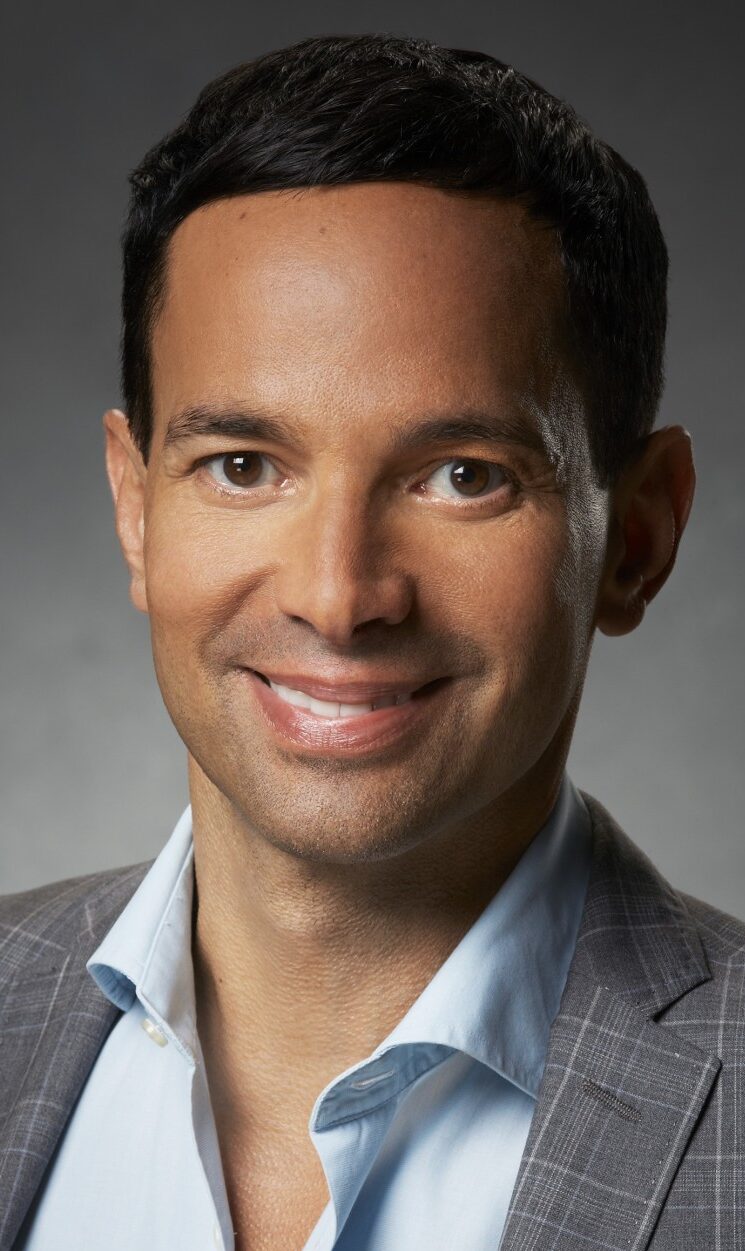 That leaves George Cheeks (pictured), president and CEO at CBS, and Cesar Conde as people of color at the top ranks of the major networks.
That leaves George Cheeks (pictured), president and CEO at CBS, and Cesar Conde as people of color at the top ranks of the major networks.
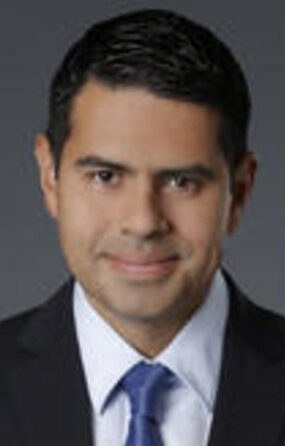 Cheeks, part of a three-person “Office of the CEO” of CBS’ parent company, Paramount Global, has been described as biracial. and Conde (pictured), who is Hispanic, is chairman of the NBCUniversal News Group.
Cheeks, part of a three-person “Office of the CEO” of CBS’ parent company, Paramount Global, has been described as biracial. and Conde (pictured), who is Hispanic, is chairman of the NBCUniversal News Group.
“While still tracking below previous norms, MSNBC’s prime-time audience last week averaged 950,000 total viewers, an increase of 36 percent from the network’s performance in December,” Jeremy Barr reported for the Washington Post. MSNBC averaged 1.22 million prime-time viewers in 2023. The network also attracted more 6 million viewers on election night, beating CNN for the first time.
“The network could get a boost from the added presence of Rachel Maddow, who will serve as the full-time host of MSNBC’s 9 p.m. hour from Inauguration Day until the end of April, according to an announcement Monday. Alex Wagner, who has been hosting her show in that hour on Tuesday, Wednesday, Thursday and Friday nights, will report from the field.
“Jones will stay on for the next few months to help guide the transition, something that is standard when television industry leaders leave their posts. . . .”
- National Association of Black Journalists: NABJ Congratulates Rashida Jones on Historic Tenure at MSNBC (Jan. 15)
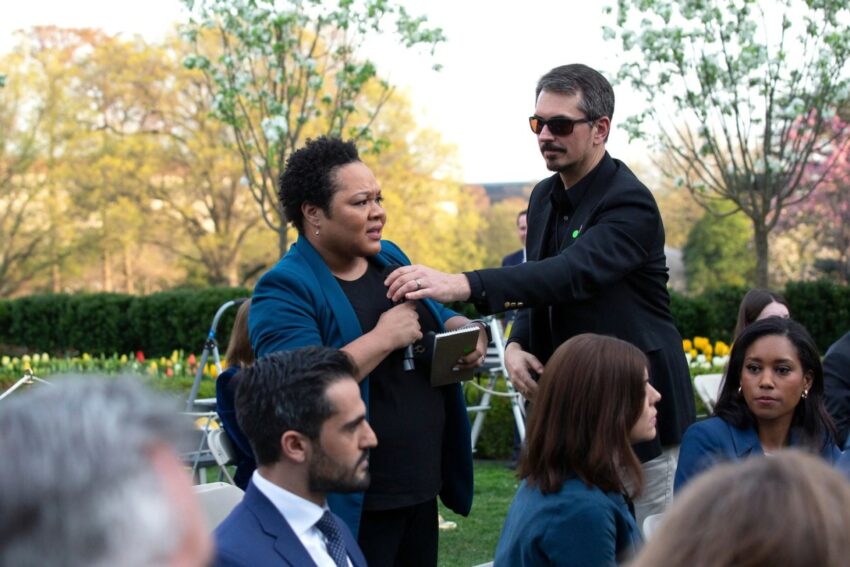
An unidentified White House aide attempts to take away the microphone of Yamiche Alcindor, then a PBS White House correspondent, in March 2020, during the presidency of Donald Trump. Trump told Alcindor not to be ‘threatening’ during a news conference about the coronavirus. (Credit: White House pool photo)
Alcindor, Insulted by Trump, to Cover Him Again
Yamiche Alcindor, who prompted an outpouring of support when she was demeaned by Donald Trump as she covered his first term in the White House, is returning to the Executive Mansion as part of NBC’s White House reporting team, the network announced Monday.
“I’m heading back to the White House beat for @NBCNews to cover the second Trump administration. It’s a true honor to be a journalist and I welcome all news tips and story ideas,” Alcindor wrote on X, formerly Twitter.
While covering the White House for PBS, Alcindor was one of several Black female journalists who became objects of Trump’s derision. In March 2020, the hashtag #WeLoveYamiche trended on social media after Trump told Alcindor not to be “threatening” during a news conference about the coronovirus. Trump interrupted Alcindor and said she needed to be more “positive” before adding: ‘It’s always trying to get you… and you know what, that’s why nobody trusts the media anymore’.”
At the news conference, in which Trump declared a national emergency due to the coronavirus outbreak, Alcindor asked Trump why his administration’s Pandemic Response Team was disbanded in May 2018. Trump replied that he knew nothing about it.
Alcindor told MSNBC’s Joy Reid on March 13, 2020, as Reid was substituting March 13, 2020, for Lawrence O’Donnell on “The Last Word,” “This is stunning, given the fact that if he’s telling the truth, the president means he doesn’t know what was going on in his own administration, and if he isn’t telling the truth, which seems more likely at this point, then you have a president who is saying, ‘I’m completely aloof and don’t want any responsibility for this pandemic.’ “
More recently, Alcindor, who moved to NBC in 2022 and became a mom the next year, had been covering the Kamala Harris Democratic presidential campaign.
When Trump spoke before the National Association of Black Journalists last summer in his controversial appearance, Alcindor, a former NABJ “Journalist of the Year,” asked why White House correspondents who are NABJ members were not consulted as questioners were chosen.
NABJ leaders said NABJ did not have much time to put the panel together.
Caitlin Huston reported Monday for the Hollywood Reporter, “Peter Alexander will continue to serve as chief White House correspondent, leading the network’s coverage of the Trump administration. He will be joined by Garrett Haake as senior White House correspondent.
“Haake previously covered Capitol Hill for four years and President-elect Trump for more than two years and recently nabbed an exclusive phone interview with Trump.
“Yamiche Alcindor and Vaughn Hillyard will serve as White House correspondents. Hillyard has covered Trump for more than two years and Alcindor covered Trump during his first presidential term.
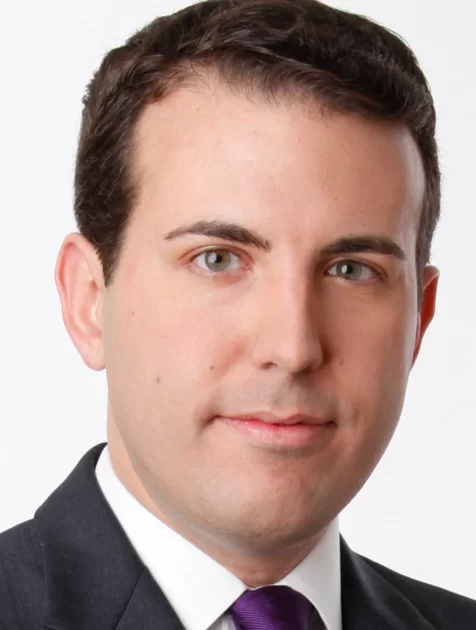 “Kelly O’Donnell and Gabe Gutierrez (pictured) will continue their roles as senior White House correspondents, and Monica Alba and Aaron Gilchrist will remain White House correspondents.
“Kelly O’Donnell and Gabe Gutierrez (pictured) will continue their roles as senior White House correspondents, and Monica Alba and Aaron Gilchrist will remain White House correspondents.
“The digital team will include Peter Nicholas, senior White House reporter, and Katherine Doyle, White House reporter. Henry Gomez, Matt Dixon and Jon Allen, who covered President-elect Trump and Vice President-elect [JD] Vance throughout the campaign cycle, will take on additional responsibilities covering the new administration. . . . “

The Cuban Institute for Freedom of Expression and the Press recorded for December, in its monthly report published Monday, 39 violations of press freedom and 28 of freedom of expression, including 28 attacks, threats and psychological aggressions; 19 arbitrary detentions; 9 restrictions in the digital space; 6 abusive uses of state power and 5 imprisonments.
Cuba to Free 533 After Biden Moves for Deal
The Cuban regime Tuesday announced the release of 553 prisoners “sanctioned for various crimes,” after the confirmation of the United States’ removal of Cuba from the list of state sponsors of terrorism, the independent website Cubanet reported from Mexico. It is not known how many who were freed, if any, were journalists.
Independent organizations have documented at least 1,153 political prisoners in Cuba, according to the U.S.-sponsored Marti Noticias.
“In a last-minute move before he leaves office next week, President Joe Biden removed Cuba from the list of countries that sponsor terrorism, lifted sanctions on companies run by Cuba’s military and again suspended a provision in a law that allows Cuban Americans to seek compensation for confiscated property on the island,” Nora Gámez Torres reported for the Miami Herald.
“In a call with reporters, a senior administration official said Biden notified Congress on Tuesday that the State Department was removing Cuba from the terrorism-sponsor list. The White House was also ‘rescinding’ a 2017 Trump-era memorandum that was the backbone of a policy to impose sanctions on the Cuban military and its multi-headed conglomerate, GAESA, that controls much of the island’s economy, including tourism. . . .”
Cubanet said, “Without mentioning whether they are political prisoners, an official note from the Cuban Foreign Ministry states that the decision was made ‘on the basis of a careful analysis based on the different modalities contemplated by law, and as part of the just and humanitarian nature of Cuba’s penal and penitentiary systems’.
“The prisoners, they argue, will receive their respective benefits ‘gradually,’ the Cuban government said, without specifying when the release would occur or who would benefit.”
Mario J. Pentón reported for Marti Noticias, the American state-run radio and television international broadcaster based in Miami, “The decision was made after mediation by the Catholic Church, where the Vatican played an important mediating role, said the sources, who asked not to be identified, a few days before Biden’s departure from the White House.
“Last March, Biden announced Cuba’s removal from the list of Countries That Do Not Fully Cooperate with Counterterrorism Efforts but decided to keep it as a State Sponsor of Terrorism, due to Havana’s ties with countries such as Iran and North Korea and for hosting fugitives from U.S. justice, among other arguments.”
“Cuba continues to harbor several U.S. fugitives from justice wanted on charges related to political violence, many of whom have resided in Cuba for decades,” the State Department said in 2023 in its annual report on terrorism.
 Among them is Assata Shakur, also known as Joanne Chesimard. “In 1977, Assata was convicted of the first-degree murder of a white state trooper during the shootout and sentenced to life in prison,” Keisha N. Blain wrote in 2023 in the New Republic. “Two years later, she escaped with the assistance of fellow [Black Liberation Army] members and is currently in exile in Cuba. Though she was vilified in the white media, Assata Shakur emerged as an inspirational figure — and an international symbol — of Black radical resistance to oppression.”
Among them is Assata Shakur, also known as Joanne Chesimard. “In 1977, Assata was convicted of the first-degree murder of a white state trooper during the shootout and sentenced to life in prison,” Keisha N. Blain wrote in 2023 in the New Republic. “Two years later, she escaped with the assistance of fellow [Black Liberation Army] members and is currently in exile in Cuba. Though she was vilified in the white media, Assata Shakur emerged as an inspirational figure — and an international symbol — of Black radical resistance to oppression.”
Pentón continued, “Cuba was first included in the list of countries sponsoring terrorism in 1982 under the accusation that the Cuban regime supported armed groups and terrorists in Latin America and other parts of the world,. Over the years, Cuba’s permanence on the list has been a point of friction in relations between the United States and the island, especially at key moments in history, such as during the diplomatic rapprochement between the governments of Barack Obama and Raúl Castro in 2015.
“Under Donald Trump’s administration, Cuba was placed back on the list in 2020, in an effort to reverse the détente policies implemented in Obama’s term. The Trump administration accused the Cuban government of supporting groups such as the Revolutionary Armed Forces of Colombia (FARC) and other insurgent movements in Latin America.
“Remaining on the list implies harsh financial limitations for Havana and obstacles to operate banking transactions and lines of credit internationally, among others.”
Meanwhile, The Cuban Institute for Freedom of Expression and the Press (ICLEP) said independent journalists were the main recipients of the Cuban regime’s aggressions in December, in which it documented 67 violations of these rights.
Among the targets were 18 journalists.
“The directors of citizen newspapers Juan Manuel Moreno Borrego, Yasser Toledo, Mabel Páez and Orlidia Barceló were threatened by the repressive bodies, summoned, interrogated and subjected to surveillance and arbitrary arrests in their homes. . . .”
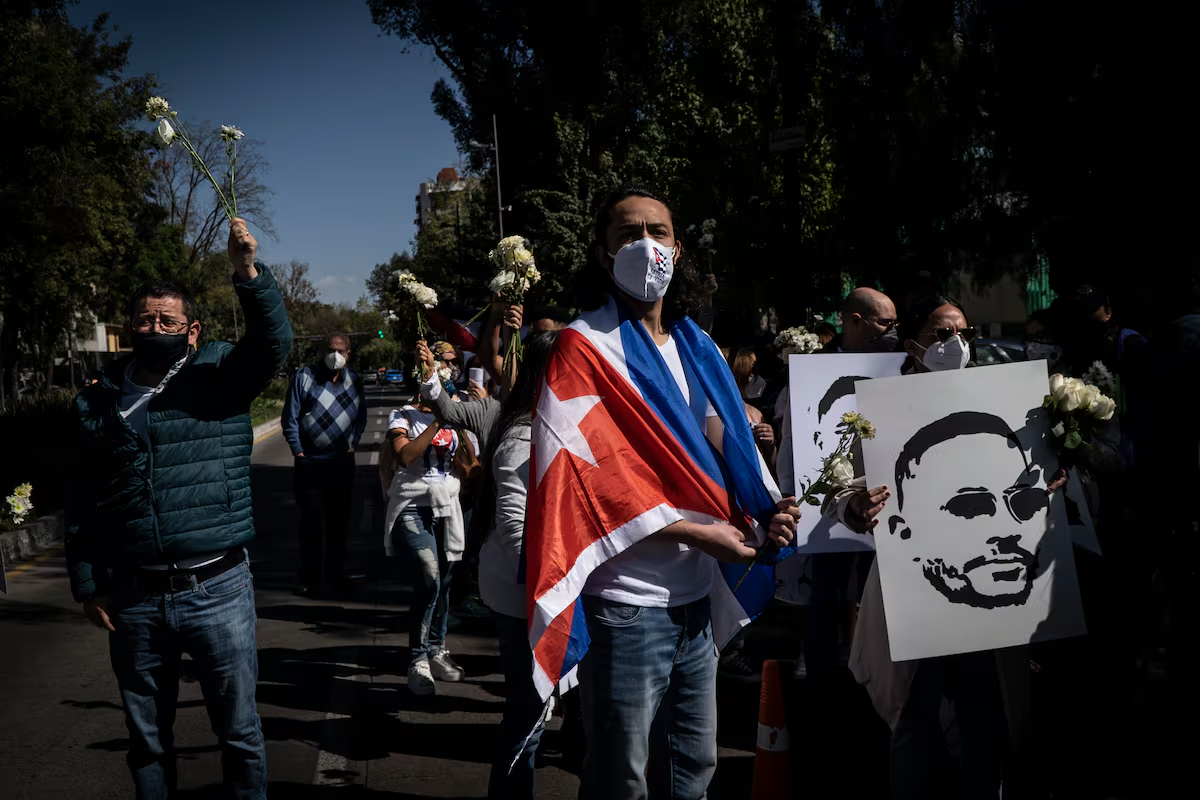
Protesters outside the Cuban Embassy in Mexico City call for release of political prisoners. (Credit: Nayeli Cruz)
. . . Decision Is Called ‘Bittersweet’
Carla Gloria Colomé, writing for Spain’s El Pais, added Wednesday, “The statement from Cuba’s Ministry of Foreign Affairs (Minrex) . . . makes no mention of a direct connection between the prisoner release and the decision by the Democratic administration, which comes just six days before Biden leaves office. . . .
“The decision to free hundreds of Cuban prisoners is bittersweet news in a country that just four years ago imprisoned over 1,500 political prisoners for peacefully protesting in the streets. Some celebrate the announcement, while others question how long the government will continue to imprison so many people for political reasons.
“Alejandro González Raga, political prisoner and executive director of the Cuban Observatory of Human Rights (OCDH), argues that the statement from the Ministry of Foreign Affairs is ‘too generic, leaving several doubts at this moment.’ He questions how many political prisoners are included in the list of those to be released. ‘The world must not forget that Cuba’s main opposition leaders are imprisoned, including José Daniel Ferrer García, Félix Navarro, Sayli Navarro, and Luis Manuel Otero Alcántara, along with nearly a thousand people who peacefully demonstrated in 2021 and subsequent years, as well as a significant number of sick and elderly individuals,’ he argues.
“Cuban lawyer Raudiel Peña Barrios, a member of the legal advisory group Cubalex, told EL PAÍS that, following the announcement, they have been in contact with several relatives of political prisoners on the island, and so far, there has been no indication that those prisoners will be released. ‘There is no confirmation that the 553 individuals to be released are political prisoners or from the July 11 protests [in 2021]. It is entirely possible that they are individuals whose detentions have nothing to do with political matters. What is undeniably clear is that this is a clear example of give-and-take, reinforcing the practice long upheld by Cuban authorities of using political prisoners as bargaining chips for certain concessions from the United States.’ . . .” [Added Jan. 15]
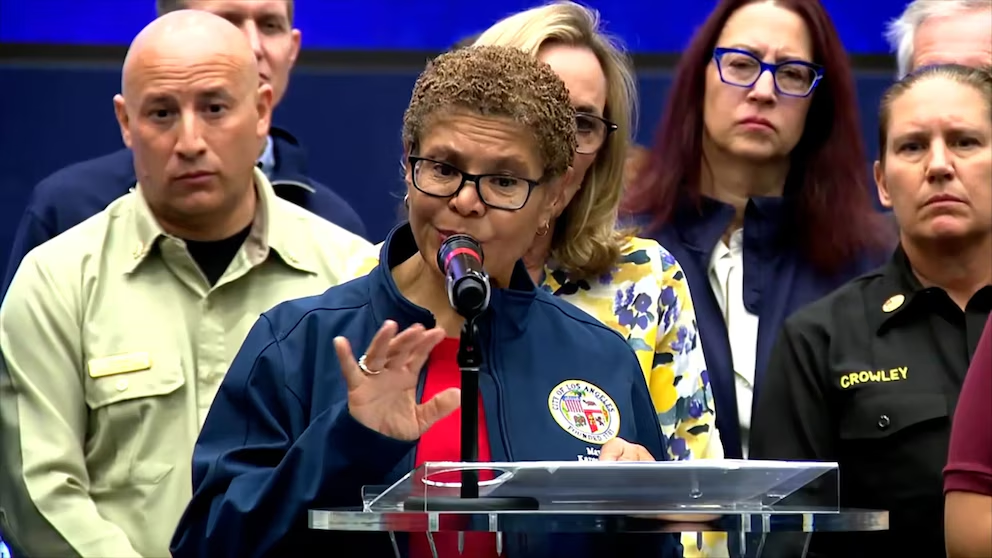
Los Angeles Mayor Karen Bass pushes back against criticism over wildfires (ABC News video)
L.A. Times Owner Regrets Endorsing Karen Bass
“Los Angeles Times owner Dr. Patrick Soon-Shiong (pictured, below) says it was ‘a mistake’ for his paper to endorse Karen Bass, after the LA mayor has been criticized for her response to the wildfires that have been scorching California,” Jasmine Laws reported for Newsweek.
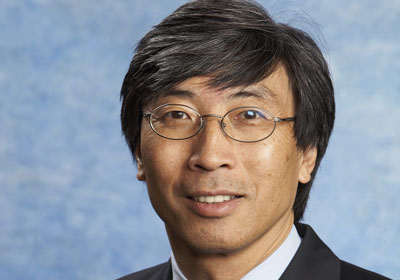 “Bass has come under major scrutiny for being away on a diplomatic trip to Ghana when the wildfires broke out, despite the National Weather Service warning of ‘extreme fire weather conditions’ in Los Angeles.
“Bass has come under major scrutiny for being away on a diplomatic trip to Ghana when the wildfires broke out, despite the National Weather Service warning of ‘extreme fire weather conditions’ in Los Angeles.
“While she returned on Wednesday as the blazes intensified and said she had been involved in the response to the fires overseas, many city residents have signed a petition calling for her resignation.
“In an interview on The Morning Meeting on Monday, Soon-Shiong was asked by one of the three hosts of the show, former Donald Trump White House Press Secretary Sean Spicer, about how Los Angeles residents had been criticizing Bass and California Governor Gavin Newsom for their response to the wildfires.
“Soon-Shiong said: ‘We endorsed Karen Bass. I think right now, that’s a mistake, and we admit that.’
“The Morning Meeting, streamed on the platform 2WAY, is hosted by Spicer, New York Times bestselling author Mark Halperin and Democratic political strategist Dan Turrentine.”
- Corina Knoll, New York Times: Shattered in the Fire: A Historic Black Haven
Trotter Retires After Speaking ‘Truth to Power’
Jan. 13, 2025
Sportswriter Cites ‘Personal,’ ‘Professional Factors’
NABJ Leaders Begin to Talk About Anti-DEI Gains
NABJ Board Votes to Lower-Case ‘White,’ ‘Brown’
Writers Note Racial Factors in Panama Canal Threat
Zuckerberg Continuing a ‘War Against Journalism’
Globally, 54% See Inequality as ‘Very Big Problem’
Bean Pies Make Chicago Tribune Food Pages
The Changes Media Must Make to Cover Trump 2.0
Reporters Urged to Focus on Gun Violence Survivors
‘Bad Bunny Wants to Read You the News’
Authorities Suspend Al Jazeera Yet Again
LGBTQ-Friendly Site to Close, but ‘Black Joy’ to Stay
D.C.’s Derrick Ward Dies, Reported on His Hometown
Short Takes: “Black Journalists Will Figure in Carter’s Legacy” — the conversation; closing of Univision Portland; NPR-Religion News Service partnership; net neutrality setback; Simone Biles; Sia Nyorkor; Bobby Caina Calvan; Angela Pace; Francine Pope Huff; subsidizing photojournalists; Military Veterans in Journalism and NAHJ; Tina Griego and Tracy Jan; Alicia Montgomery; media projects on Black men; “PBS News Hour” on aid to sub-Saharan Africa; cartoonists in jeopardy; danger for press in Latin America.
Support Journal-ismsDonations are tax-deductible.
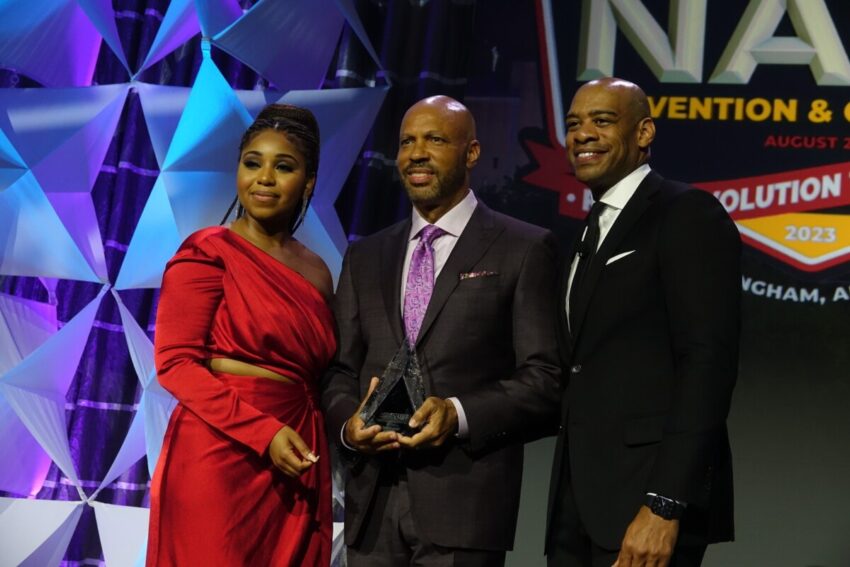
Jim Trotter accepts the “Journalist of the Year” award on Aug. 5, 2023, at the National Association of Black Journalists convention in Birmingham, Ala. He is flanked by Somara Theodore and DeMarco Morgan, both of ABC News. (Credit: NABJ)
Sportswriter Cites ‘Personal,’ ‘Professional Factors’
Jim Trotter, the award-winning former NFL writer who last fall settled a lawsuit he filed against the football league over racial discrimination, and has been the National Association of Black Journalists’ “Journalist of the Year,” is retiring.
He is also a Bill Nunn Award winner, and Lacy-Smith Award recipient, as well as a lecturer at San Diego State University.
“There’s no back story. Personal and professional factors led me to this decision,” Trotter, 61, messaged Journal-isms on Wednesday, two days after announcing his decision on the BlueSky social media platform. “My plan is to enjoy family and friends and to pursue purpose-driven projects should they arise.”
He told a BlueSky follower, “My only plans are to have no plans. 🙂 “
In addition to his issues with the NFL, Trotter had complained on X, formerly Twitter, about The Athletic’s editing of his Oct. 29 column about what he considered a double standard over San Francisco 49ers defensive end Nick Bosa wearing a white baseball cap with the words “Make America Great Again.”
“Bosa has every right to support whomever he chooses,” Trotter wrote. “As the saying goes, it’s a free country. But the display — and the intentionality behind it — was curious considering the NFL has gone to great lengths over the last eight years to stop players from making political expressions at games.
 “In 2018, two years after Colin Kaepernick first protested police brutality against Black and Brown people by silently taking a knee during the national anthem, the league modified its pregame policy. In a vote that received 30 yeas and two abstentions, the owners required players to stand during ‘The Star-Spangled Banner’ or remain in the locker room until its conclusion.” (Photo at Journal-isms Roundtable, October 2024, by Jeanine L. Cummins)
“In 2018, two years after Colin Kaepernick first protested police brutality against Black and Brown people by silently taking a knee during the national anthem, the league modified its pregame policy. In a vote that received 30 yeas and two abstentions, the owners required players to stand during ‘The Star-Spangled Banner’ or remain in the locker room until its conclusion.” (Photo at Journal-isms Roundtable, October 2024, by Jeanine L. Cummins)
After publication, Trotter tweeted, “Full disclosure, this is the watered-down version of the original column. I was not allowed to properly, IMO, contextualize the significance and consequence of the moment because, I was told, I’d be in violation of The [Athletic’s] journalistic standards regarding sports and political commentary,” according to Awful Announcing.
Bosa eventually was fined $11,255 for violating NFL uniform rules — wearing a hat that contained a personal message, writer Ken Stone told readers in November.
Stone then asked, “Is Trotter worried he’ll be muzzled by The Athletic on future stories?
“ ‘I think there’s always a concern about that, as an opinion writer,’ he told me. ‘It can be a delicate dance … between writer and editor or writer and, you know, organizational policies.’ ”
Stone also wrote, “But he concedes: ‘Every paper and website I’ve ever worked at has had some considerations beyond my control that I couldn’t do what I wanted to do.’ ”
The NFL settled a lawsuit with Trotter on Oct. 9, just over a year after the journalist, then a reporter for the NFL Network whose contract was not renewed, sued the league. Trotter said the contract was not renewed because he repeatedly spoke out about pro football’s lack of diversity at the league office, among its coaches and within its media arm.”
In exchange for the settlement, the NFL pledged financial support for a scholarship foundation for journalism students at historically Black colleges and universities.
Terms of the settlement were not publicly disclosed.

Jim Trotter posted this photo on BlueSky Jan. 6, writing, “No better way to spend the first full day of retirement.”
Trotter’s lawsuit said NFL Media did not have a single Black person in a managerial position or on its news desk.
After the settlement was announced, Trotter told the Oct. 29 Journal-isms Roundtable that he was disappointed in the lack of support from some African Americans in the NFL, leading to a larger question for some about the state of Black solidarity.
But fellow Black sportswriter Mike Freeman wrote then for USA Today, “Trotter’s story may not get the most attention or clicks but it still is important and historic. Trotter’s goal was to bring attention to the NFL Network newsroom that he says lacked people of color as key decision-makers in a space where the majority of players are people of color.
“The reason Trotter’s actions hit a lot of Black journalists directly in the heart is because many newsrooms have this issue. Trotter’s case is a proxy for a number of people who have battled this problem. He’s been a beacon, fighting the good fight.”
Stone’s profile of Trotter ran in the Times of San Diego, the city where Trotter lives and spent 18 years at the Union-Tribune. It was headlined, “Ethical Prodigy: Ex-U-T Reporter Spoke Truth to Power Decades Before NFL Suit.”

“For the past 10 years, the annual Black history campaign has been a part of McDonald’s during February,” the New York Amsterdam News reported in 2013. “Faces of Black History was created to salute and honor Black history makers throughout the community and the country, from Dr. Martin Luther King Jr. and Rosa Parks to present-day heroes.” (Credit: New York Amsterdam News)
NABJ Leaders Begin to Talk About Anti-DEI Gains
As Meta, Amazon and McDonald’s announced they are dropping or altering their diversity, equity and inclusion programs, leaders of the National Association of Black Journalists said at their board meeting Saturday that they had been asking companies their stances on the issue.
Former NABJ President Barbara Ciara met with a staff member of the Federal Communications Commission and President Ken Lemon spoke with ABC executives, who assured him they are still committed to diversity and will keep the network’s race and culture unit. Lemon said they also plan to meet leaders of the Wall Street Journal, in light of the departure of Brent W. Jones last fall from the company and the Journal masthead.
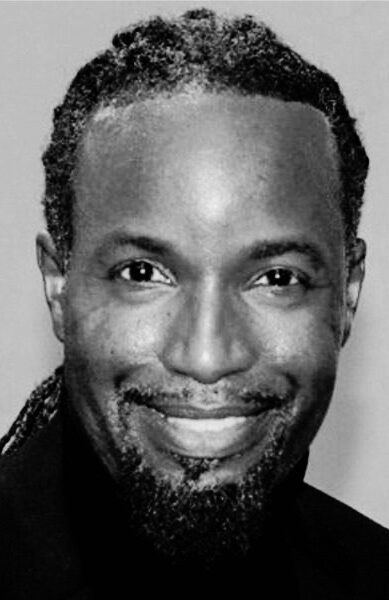 Among other achievements, Jones (pictured) introduced talent diversity partnerships for the Journal and expanded Dow Jones’ HBCU Media Collective program his team launched in 2023 for Barron’s and MarketWatch to provide global exposure at five News Corp properties in the United Kingdom, the company said in November as it announced Jones’ departure. Jones was masthead editor, culture, training and outreach. Others of color followed.
Among other achievements, Jones (pictured) introduced talent diversity partnerships for the Journal and expanded Dow Jones’ HBCU Media Collective program his team launched in 2023 for Barron’s and MarketWatch to provide global exposure at five News Corp properties in the United Kingdom, the company said in November as it announced Jones’ departure. Jones was masthead editor, culture, training and outreach. Others of color followed.
At NABJ’s summer and fall board meetings, Rodney Brooks, finance chair, warned the board that the forces against diversity, equity and inclusion would continue to make gains that would escalate should the Republicans win the presidency. However, the withdrawal of some corporate DEI programs had not yet affected NABJ, he said then.
While Brooks’ statements were not met with much response, NABJ treasurer Jasmine Styles did say at an August membership meeting, that budget projections were conservative because of possibilities that anti-DEI forces would threaten contributions. “We keep our numbers low,” Styles told Journal-isms at the time.
The anti-diversity forces have only gained steam since then. “Even McDonald’s!” exclaimed Executive Director Drew Berry in his presentation.
“McDonald’s said Monday it will retire specific goals for achieving diversity at senior leadership levels,” Dee-Ann Durbin reported for the Associated Press. “It also intends to end a program that encourages its suppliers to develop diversity training and to increase the number of minority group members represented within their own leadership ranks.”
NABJ did not respond to a question about how much support it gets from McDonald’s, but other groups did.
Adam K. Pawlus, executive director of NLGJA: The Association of LGBTQ Journalists, and Francine Compton, associate director of the Indigenous Journalists Association, said their organizations had not received support from McDonald’s.
Yaneth Guillen-Diaz, executive director of the National Association of Hispanic Journalists, said, .”We have not received any support from McDonalds in the last few years, so I do not anticipate any financial changes on our end,.
At the Asian American Journalists Association, Ai Uchida, chief operating officer, said, “McDonald’s supported us in 2023 as well as in 2022. We did not receive their support in 2024. We welcome opportunities to work with them again and our door is always open.”
McDonald’s was listed as a sponsor of the 2017 NABJ convention in New Orleans.
In the New York City tri-state area, for years during Black History Month, McDonald’s honored several local journalists for their contribution to radio, print and television journalism. “This year is the eighth anniversary” of the ceremony, “and McDonald’s honored 13 Black media legends and trailblazers who have had an impact on the community through their achievements and positive examples,” the New York Amsterdam News reported in 2015.
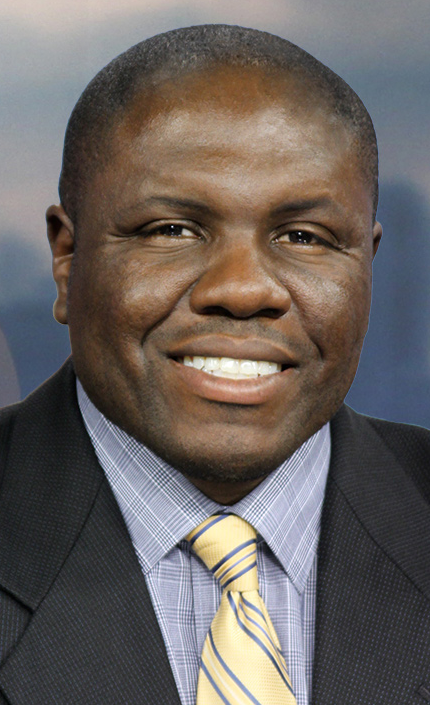 Although NABJ did not respond to questions about how much support it receives now from McDonald’s, Lemon (pictured) described his meetings with media managers.
Although NABJ did not respond to questions about how much support it receives now from McDonald’s, Lemon (pictured) described his meetings with media managers.
“The meetings with media managers have been helpful. Managers tell me presidential election years are usually a big year for revenue. That didn’t happen in 2024, and they said the year after is usually a slow year for revenue. They told me candidates spent less in traditional media.
“Some media groups have already had layoffs and cut hiring of nonessential jobs.
“They say cuts can depend on several factors, some of which may not be controllable, but they shared a few general suggestions.
“Managers place more value on journalists who are great at enterprising stories, seek professional development and training and see the benefit in line workers who can manage others.
“As a result we are working on training that includes certification where possible, explores management opportunities, and looks at enterprising news.
“We will continue meetings with managers as a regular function to learn more. I will do that individually and in group meetings with board members. I hope it wall also build relationships between managers and board members.”
- Winston Cho, Hollywood Reporter: Byron Allen’s $10B Discrimination Lawsuit Against McDonald’s Over Ad Spend to Go to Trial (Dec. 3)
- Jessica Guynn and Jayme Fraser, USA Today: Corporate diversity database: A USA TODAY investigative series inside the nation’s most powerful companies (Feb. 16, 2023, updated March 16, 2023)
- Journal-isms: Pick for FCC Chair: We’ll No Longer Promote DEI (Dec. 18)
- Journal-isms: JAWS Backs Fight Against DEI ‘Misinformation’ (April 18)
- McDonald’s Corp: Our Commitment to Inclusion at McDonald’s (Jan. 6)
- Conor Murray, Forbes: These Companies Have Rolled Back DEI Policies—McDonald’s Is Latest To Abandon Diversity Standards
- Naomi Nix and Julian Mark, Washington Post: Mark Zuckerberg says corporate culture was ‘neutered’ as Meta scraps DEI
The National Association of Black Journalists prepared this trailer for a documentary about the organization for its 50th anniversary this year. Leaders hope to enter the finished product in film festivals. (Credit: YouTube)
NABJ Board Votes to Lower-Case ‘White,’ ‘Brown’
With little discussion, the board of directors of the National Association of Black Journalists voted unanimously Saturday that its style guide should not recommend capitalizing “white” and “brown” when referring to race or ethnicity.
The organization did not respond to a request for an explanation of its rationale. It has been on both sides of the issue. On June 11, 2020, NABJ recommended that “whenever a color is used to appropriately describe race then it should be capitalized, including White and Brown.”
However, the New York Times took the opposite position that same year as it adopted a capital “B” for “Black.” “We will retain lowercase treatment for ‘white.’ While there is an obvious question of parallelism, there has been no comparable movement toward widespread adoption of a new style for ‘white,’ and there is less of a sense that ‘white’ describes a shared culture and history. Moreover, hate groups and white supremacists have long favored the uppercase style, which in itself is reason to avoid it.
“The term ‘brown’ as a racial or ethnic description should also generally remain lowercase and should be used with care. ‘Brown’ has been used to describe such a disparate range of people — Latin, Indigenous, Asian, Middle Eastern — that the meaning is often unclear to readers. A more specific description is generally best.”
The Washington Post does capitalize “White.” It said the same year — amid the “racial reckoning” after the police murder of George Floyd:
“Stories involving race show that White also represents a distinct cultural identity in the United States. In American history, many White Europeans who entered the country during times of mass migration were the targets of racial and ethnic discrimination. These diverse ethnicities were eventually assimilated into the collective group that has had its own cultural and historical impact on the nation. As such, White should be represented with a capital W.
“In accordance with our style change, people who do not want to be recognized as a color also have the choice of representing themselves by their cultural background, as they currently do, identifying as German American, Irish American, Italian American or other representations of national heritage.
“Separately, we will limit the uppercase version of the racial categorization Brown to direct quotations and use it sparingly in other instances. Although the term has gained general acceptance, the designation is seen by many as a catchall to describe people of color of vastly diverse ethnic and cultural backgrounds who are not Black.”
“Accidents and diseases took the lives of 5,000 workers, mostly Black Caribbean migrants,” notes this video from Alex Gendler, “Demolition, disease, and death: Building the Panama Canal.” (Credit: YouTube)
Writers Note Racial Factors in Panama Canal Threat
“Donald Trump’s recent remarks about reclaiming control of the Panama Canal disregard international law and undermine the legacy of the Black Caribbean workers who built it,” Janvieve Williams Comrie and Amicar Priestley wrote Jan. 3 in the New York Amsterdam News, part of the Black press. “His statements come at a critical moment as Panama is led by President José Raúl Mulino, whose right-wing administration has already displayed an alignment with neoliberal and foreign business interests, raising serious concerns about how the nation will respond to Trump’s threats.
“The Panama Canal, constructed through the backbreaking and often deadly labor of mostly Black workers, primarily from the Caribbean — not the U.S., as Trump falsely stated, is a global symbol of resilience and sacrifice. For decades, their contributions were overlooked, even as the Torrijos-Carter Treaties of 1977 eventually secured Panama’s sovereignty over the canal in 1999. . . .”
The comments by the activists are not the only ones referencing the racial and colonialist overtones of Trump’s threats, expressed in both the U.S, and in Panama.
In the Washington Post, columnist Petula Dvorak reminded readers Dec. 26, “The social and racial divide along the Panama Canal Zone in its American heyday was stark: a silver and gold, segregated system of pay — and life.”
In Panama’s La Prensa, Alvaro Lasso Lokee, who describes himself as “simply a Panamanian citizen, proud of his land,” wrote Wednesday:
“It would seem that a broader objective is being pursued: to exert control in a dispute against an economic rival that has grown unexpectedly. This confrontation reflects the internal dealings of global powers and has no connection to Panamanian interests. Regrettably, they are now involving us and seeking to blame us for other people’s mistakes.
“Questioning the Canal tariffs and demanding their reduction contradicts the principles of ‘free trade,’ a pillar of liberal economies. In addition, the central figure in this controversy has a history of tax evasion, labor abuse, and derogatory comments toward citizens of Hispanic origin.
“Although he presents himself as a leader of conservative nationalists, he also displays affinity with racist groups. Curiously, he avoids referring to dictatorships such as those in Nicaragua, Venezuela, or Cuba, the largest regional migration hotbeds. These omissions raise suspicions and suggest a veiled interest in destabilizing democracies, as he attempted to do in January 2020. . . .”
- Suzanne Gamboa, NBC Latino: Mexico’s president claps back at Trump, suggests new name for U.S. — America Mexicana
- History Channel: How the Panama Canal Was Built | The Engineering that Built the World (Season 1) (video) (Nov. 4, 2021)
- Richard Morales, La Prensa, Panama: On how to beat Trump (and those who will come)
- Silvio Guerra Morales, Panama America: THE PANAMA CANAL: THE EXCLUSIVE HERITAGE OF PANAMANIANS. ALL MILITARY INTERVENTION IS BANNED) (Dec. 28)
- Panama America: Panama responds to Trump: ‘Canal sovereignty is not negotiable’
- Alma Solis, Associated Press: Panama Canal administrator pushes back against Trump’s assertions of Chinese meddling
- Joshua Zeitz, Politico Magazine: There’s More to Trump’s Bluster Over the Panama Canal Than You Think
In a video, Mark Zuckerberg lamented that amid the debates around the harms from online content, “governments and legacy media have pushed to censor more and more.” (Credit: YouTube)
Zuckerberg Continuing a ‘War Against Journalism’
“Mark Zuckerberg’s recent statements, in which he openly brands journalism and fact-checkers as ‘biased,’ are just the culmination of a long war of attrition against journalism on Facebook,” Thibaut Bruttin, director general of the Paris-based global press freedom group Reporters Without Borders, said Friday.
Bruttin spoke after Meta Platforms Inc. announced Tuesday it is making major changes to its content moderation policies, eliminating its fact-checking program and bringing more political conversations back to feeds on Facebook and Instagram, as part of a bid by CEO Mark Zuckerberg to “restore free expression” on its platform, as Alex Weprin reported for the Hollywood Reporter.
Bruttin continued, “Reporters Without Borders (RSF) has looked back at a decade of actions by Meta undermining professional journalism and access to reliable information, and in ten key points, the organization highlights how the social media giant has gradually built a technical, economic and political architecture hostile to quality journalism.”
Clayton Weimers, the U.S. director of the press freedom group, who also addressed the issue in December at a Journal-isms Roundtable, messaged Journal-isms Thursday, “Facebook’s fact-checking always had a lot of problems but just giving up on the concept of moderation is worse.
“Elon Musk set off a race to the bottom for disinformation on social media sites and Zuckerberg is chasing after him. The central problem is that these sites are still fundamentally a black hole. Users can’t know how or why information is reaching them because the algorithms are secret. RSF’s position is that for these sites to live up to being the digital town squares they claim to be, they need independent, transparent, and democratic guardrails.”
Weimers also said, “Tangentially related, we also have a technical solution for newsrooms, the Journalism Trust initiative, which offers an ISO standard for trustworthy journalism. If it wanted to, Meta could just plug JTI into their algorithm to automatically boost content from trusted journalistic sources and correct for the competitive advantage that fake news and disinformation currently enjoy.”
Camille Grenier, executive director of RSF’s Paris-based sister organization, the Forum Information & Democracy, messaged Journal-isms, “Since 2019, we’ve been calling on States to act so that we don’t end up in this kind of situation. Right now we are monitoring what the video from Zuckerberg will mean for countries outside of the US and how we can promote a democratic information space based on . . . principles we established back in 2018.
- David Bauder, Associated Press: No more fact-checking for Meta. How will this change media — and the pursuit of truth?
- Editor & Publisher: Meta’s fact-checking shift: Katie Sanders on what’s next for PolitiFact and the news industry
- Sarah Ellison, Washington Post: Meta deals a blow to fact-checking. Critics say politics is to blame.
- Angela Fu, Poynter Institute: Does crowdsourced fact-checking work? Experts are skeptical of Meta’s plan
- Mike Isaac, Sheera Frenkel and Kate Conger, New York Times: Inside Mark Zuckerberg’s Sprint to Remake Meta for the Trump Era
- Alex Mahadevan, Poynter Institute: Meta will attempt crowdsourced fact-checking. Here’s why it won’t workI
Globally, 54% See Inequality as ‘Very Big Problem’
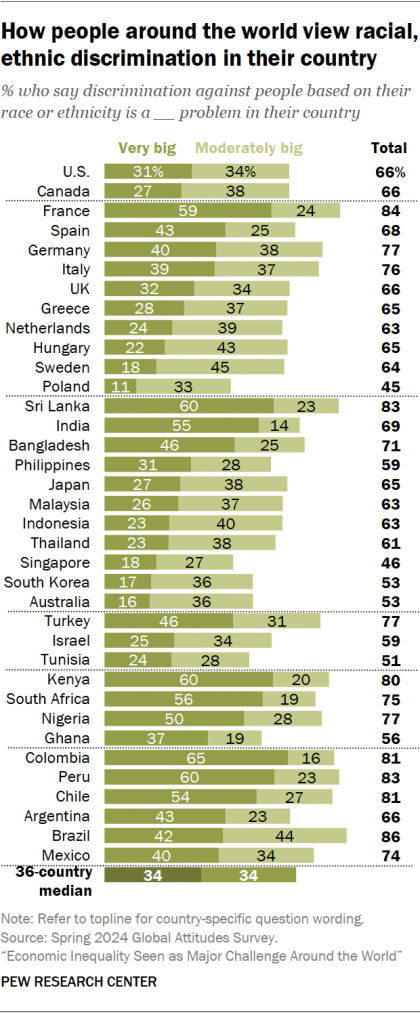 “In our 36-country survey, we asked respondents how large a problem various types of inequality are in their nation, including the gap between the rich and the poor, unequal rights for men and women, discrimination based on a person’s race or ethnicity, and discrimination based on a person’s religion,” Richard Wike, Moira Fagan, Christine Huang, Laura Clancy and Jordan Lippert reported Thursday for the Pew Research Center.
“In our 36-country survey, we asked respondents how large a problem various types of inequality are in their nation, including the gap between the rich and the poor, unequal rights for men and women, discrimination based on a person’s race or ethnicity, and discrimination based on a person’s religion,” Richard Wike, Moira Fagan, Christine Huang, Laura Clancy and Jordan Lippert reported Thursday for the Pew Research Center.
In addition, across “the countries surveyed, a median of 34% of adults say racial or ethnic discrimination is a very big problem where they live. Another 34% consider it a moderately big problem.
“Concerns are especially high in the sub-Saharan African and Latin American countries surveyed, as well as in Turkey and in the Asia-Pacific nations of Bangladesh, India and Sri Lanka. . . .”
The researchers listed these “key takeaways“:
- “A median of 54% across the countries surveyed say the gap between the rich and the poor is a very big problem. Smaller median shares say the same about the other types of inequality.
- “In general, people in middle-income countries are more likely than those in high-income countries to see each form of inequality as a very big problem where they live.
- In some countries, people on the ideological left are especially likely to see economic inequality, gender inequality, and racial and ethnic discrimination as very big problems when compared with those on the right.
Among the U.S. institutions that have sought to make inequality a priority are the financially troubled Center for Public Integrity, an investigative newsroom that adopted “investigating inequality” as its mission; and the Ford Foundation, which has a journalism component.
- World Bank: Poverty, Prosperity, and Planet Report: Global poverty reduction has slowed to a near standstill
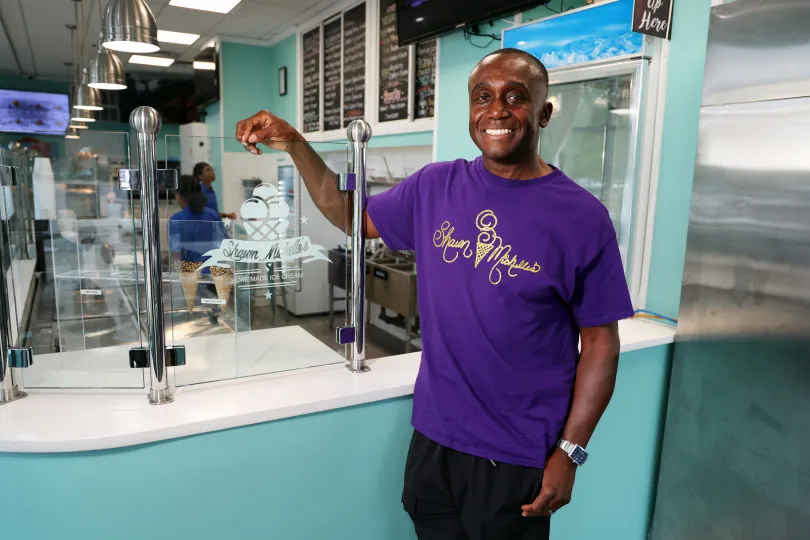
Yahya Muhammad, owner of Shawn Michelle’s Homemade Ice Cream parlor in Chicago, at his shop. The parlor offers two Bean Pie ice cream flavors. (Credit: Terrence Antonio James/Chicago Tribune)
Bean Pies Make Chicago Tribune Food Pages
“In Black communities around America, the bean pie is a symbol of the varied Muslim communities that emerged from the Nation of Islam’s nearly 100-year history in the United States,” Ahmed Ali Akbar wrote Wednesday for the Chicago Tribune.
“For many, the dessert stands for Black pride and healthy eating. Much of its fame comes from charismatic street vendors such as 40X, who spread the teachings of the late Minister Elijah Muhammad on city corners and at markets and fairs; those teachings include that the navy bean is a kind of superfood.
“In conversations with Black elders, community historians, restaurateurs, religious leaders, academics and one bean pie man in a suit and bow tie, I’ve learned a small part of how the South Side of Chicago holds the keys to the complex, core histories encoded within the bean pie. Despite unusually good access to the Nation of Islam and local community historians, much of the history was still difficult to verify. But it’s clear Chicago has some of the best claims to being the historic capital of the bean pie in the United States. . . .”
 The writer of this piece is Ahmed Ali Akbar (pictured), a Pakistani-American born in Saginaw, Mich. Akbar is a food reporter with a master’s degree in Islamic studies from Harvard Divinity School, and has been in Chicago only since last February.
The writer of this piece is Ahmed Ali Akbar (pictured), a Pakistani-American born in Saginaw, Mich. Akbar is a food reporter with a master’s degree in Islamic studies from Harvard Divinity School, and has been in Chicago only since last February.
Akbar formerly worked at BuzzFeed, and as a freelancer, won a James Beard food writing award in 2021 for a 2021 piece, “Inside the Secretive, Semi-Illicit, High Stakes World of WhatsApp Mango Importing,” for eater.com.
Akbar’s Tribune story is not the first to have been written about bean pies, but at 2,600 words, it is one of the lengthiest and an example of approaching food writing as cultural reporting. It is also an example of diversity at a newspaper not especially recognized for that quality.
“I know hilal food,” Akbar told Journal-isms, referring to food that is “lawful” in Islamic teachings. “The media don’t focus on hilal food.” He said he was inspired to report this particular piece when he learned of Shawn Michelle’s Homemade Ice Cream parlor on the South Side of Chicago and in Olympia, Ill., in the southern suburbs. The parlors now offer two Bean Pie ice cream flavors.
His editors were supportive, Akbar said. They told him, “Do what you’re good at.”
Akbar followed that advice.
- PBS: How Islam Influenced Black Americans in 1920s Chicago | American Muslims: A History Revealed (video)
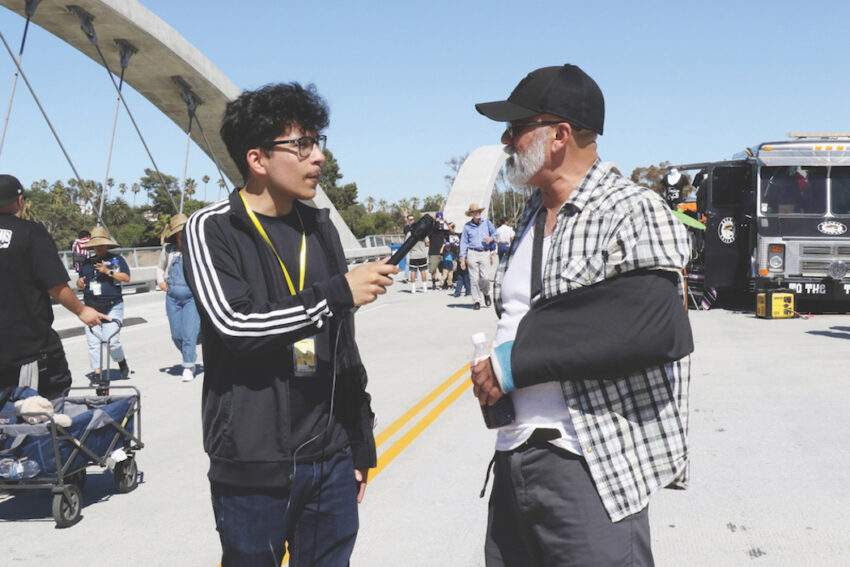
Boyle Heights Beat community reporter Alex Medina interviews a local resident about the re-opening of the 6th Street Bridge in Los Angeles. Kevin Merida cites Boyle Heights Beat as an example of a community organization joining forces with others. (LA Local News Initiative)
The Changes Media Must Make to Cover Trump 2.0
Here’s “what I’m most passionate about,” said Kevin Merida (pictured, below) former executive editor of the Los Angeles Times. “We need to get a better handle on our country. Our understanding of our fellow citizens is not sophisticated enough. We need to be more reportorially entrenched in our communities, including by talking to people who don’t have a relationship with the media or perhaps any institution.
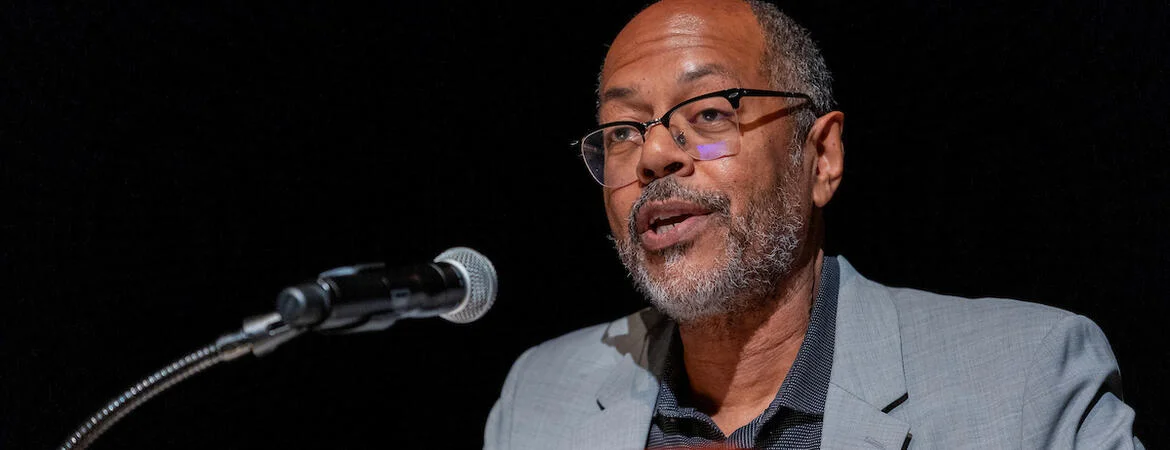 “I suggest turbocharging what is taking place increasingly in our profession: partnership reporting. We’ll be more effective if we collaborate more and compete less — whether that is community news organizations joining forces, as we’re doing in Los Angeles with a new nonprofit initiative, or national outlets teaming up with local, regional and even college news organizations, as places like ProPublica and the New York Times have done.”
“I suggest turbocharging what is taking place increasingly in our profession: partnership reporting. We’ll be more effective if we collaborate more and compete less — whether that is community news organizations joining forces, as we’re doing in Los Angeles with a new nonprofit initiative, or national outlets teaming up with local, regional and even college news organizations, as places like ProPublica and the New York Times have done.”
Merida was one of 10 “top journalists” asked by Jeremy Barr of the Washington Post, “How should the news industry cover Trump?”
Merida also said, “We need to know more about how Americans of every demographic are living and feeling, in real time, with stories that are deep and compelling — and not drive-by stops at the local barbershop. And if we do that well, it will inform coverage of this next Trump administration and every administration after.”
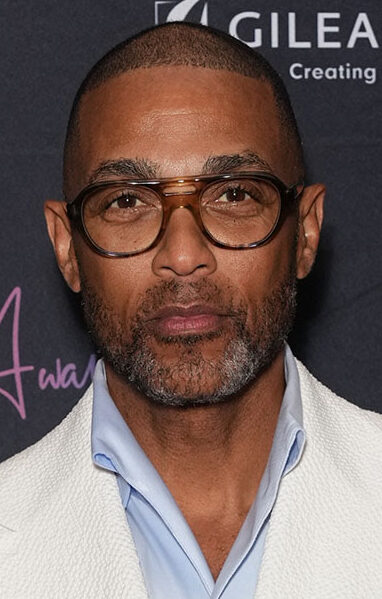 Don Lemon, former CNN host (pictured), told Barr, “The media must also cover less of what Trump says and more of what he does. Too often journalists let Trump’s latest cruel or bigoted comment rule the news cycle. Too rarely do they dedicate the front page to the radical actions of the man. There will be few guardrails in this second term. As Trump vows to carry out [a large wave of deportations], I pray an insult spat at a press conference doesn’t distract reporters from the work of showing the American people what it looks like to rip Black and Brown families apart.”
Don Lemon, former CNN host (pictured), told Barr, “The media must also cover less of what Trump says and more of what he does. Too often journalists let Trump’s latest cruel or bigoted comment rule the news cycle. Too rarely do they dedicate the front page to the radical actions of the man. There will be few guardrails in this second term. As Trump vows to carry out [a large wave of deportations], I pray an insult spat at a press conference doesn’t distract reporters from the work of showing the American people what it looks like to rip Black and Brown families apart.”
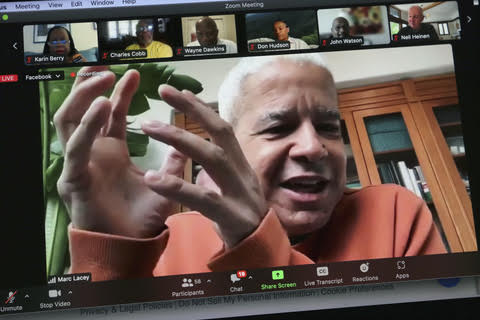 Marc Lacey (pictured, by Sharon Farmer/sfphotoworks), a managing editor at The New York Times, said, “We’re going to need thick skin and a clear sense of mission as we report on how the Trump White House governs, oversees the largest economy in the world and guides the country through unforeseen crises. Independence and unflinching accountability are what our audience across the country and around the world expects of us. We intend to deliver. . . .”
Marc Lacey (pictured, by Sharon Farmer/sfphotoworks), a managing editor at The New York Times, said, “We’re going to need thick skin and a clear sense of mission as we report on how the Trump White House governs, oversees the largest economy in the world and guides the country through unforeseen crises. Independence and unflinching accountability are what our audience across the country and around the world expects of us. We intend to deliver. . . .”
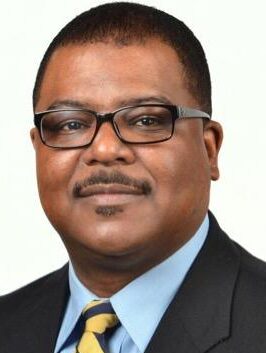 Leroy Chapman (pictured), editor-in-chief of the Atlanta Journal-Constitution, said, “Beyond politics, this newsroom’s primary mission will be to fully inform Georgians about what the Trump administration means for their daily lives. Candidate Trump promised sweeping change aimed at significantly reducing the power of the federal government to regulate business, education and local and state government.
Leroy Chapman (pictured), editor-in-chief of the Atlanta Journal-Constitution, said, “Beyond politics, this newsroom’s primary mission will be to fully inform Georgians about what the Trump administration means for their daily lives. Candidate Trump promised sweeping change aimed at significantly reducing the power of the federal government to regulate business, education and local and state government.
“Most prominent are Trump’s plans for mass deportation, for demolishing the federal Department of Education, for imposing new tariffs and for reordering tax policy. Just those proposals could significantly impact law enforcement and local government, jobs, Georgia’s ports, the price for goods and our schools at every level.
“We will serve our community and state best by meticulously vetting these policy proposals and weighing the impact, speed and weight of change. We will be clear about the potential benefits and the potential harm and draw straight lines of accountability.”
Other responses were from Brian Williams , ormer broadcast television host and anchor; David Remnick, editor, the New Yorker; Jill Abramson, former executive editor, New York Times; Brian McGrory, former editor, Boston Globe; Katie Couric, former broadcast television host and anchor; and Sam Feist, chief executive, C-SPAN.
- Zeeshan Aleem, MSNBC: The fourth anniversary of the Jan. 6 insurrection is a strange one (Jan. 5)
- Perry Bacon Jr., Washington Post: The Biden presidency was one man’s dream running into reality
- Roy S. Johnson, al.com: Trump’s assumption about New Orleans killer reminds us of an old smelly lesson (Jan. 3)
- Charlie Nash, Mediaite: Geraldo Says It’s ‘The Right Thing’ for Trump To Pardon Most J6ers: Were Punished for ‘Their Faith in Donald J. Trump’
- Marc H. Morial, National Urban League: Trump Is Poised To Launch An Unprecedented Attack On Racial Justice. The National Urban League Is Ready To Fight Back
- Norman Pearlstine, Columbia Journalism Review: Trump, the Public, and the Press
Reporters Urged to Focus on Gun Violence Survivors
“Gun violence coverage often focuses on people killed in shootings. And that’s for good reason — more than 48,000 Americans are shot and killed each year, according to recent research,” Kaitlin Washburn wrote Dec. 27 for the Association of Health Care Journalists.
“However, only focusing on fatalities misses a big part of the problem. A majority of people who are shot survive — about 115,000 nonfatal shootings occur each year. Survivors sometimes wrestle with the physical, emotional, and mental impacts of a gunshot wound for the rest of their lives.
“Amplifying the voices of survivors is critical for understanding the full extent of firearm violence. Survivors are left with chronic health problems, both physical issues and mental health disorders. There is also the provider side to this story, which would involve talking with trauma surgeons, emergency room doctors and nurses.
“We recently published a Q&A with two reporters who are investigating what happened to the children and adults who survived a mass shooting earlier this year during the Kansas City Chiefs Super Bowl celebration.
“Bram Sable-Smith, the Midwest correspondent for KFF Health News, and Peggy Lowe, an investigative reporter focused on public safety at KCUR, reported on the multi-part series. They spent months interviewing the survivors about their experiences coping with the physical and emotional toll of the shooting.
“One of the salient points they made was how survivors feel forgotten and left behind. . . .
“The following advice will leave you with story ideas, tips for approaching and speaking with shooting survivors sources for data and research on nonfatal firearm violence. . . .”
- Jarvis De Berry, MSNBC: After New Year’s Day terrorist attack, New Orleans tries to balance tourism and grief (Jan. 4)
- Will Sutton, NOLA.com: A horrific tragedy for New Orleans and the world, but we will be ‘undaunted’ (Jan. 2)

Benito Antonio Martínez Ocasio, aka Bad Bunny, is second from right. (Credit: Josian Bruno/ Wapa Digital)
‘Bad Bunny Wants to Read You the News’
“Perhaps you no longer watch your local news broadcast every morning, but Bad Bunny would like to change that,” Emily Leibert wrote Tuesday for the Cut.
“On the heels of his sixth studio album, Debí Tirar Más Fotos — a love letter to his homeland of Puerto Rico and its diaspora — the reggaeton star made a surprise appearance on Puerto Rican news channel NotiCentro al Amanecer Tuesday morning. Suited up like a freshly graduated broadcast journalism major, Benito Antonio Martínez Ocasio made his debut as an anchorman on the news desk. . . .”
- Mairim H. Batista Serrano, Wapa.TV, San Juan, Puerto Rico: Bad Bunny debuts as news presenter on the leader, NotiCentro al Amanecer
Authorities Suspend Al Jazeera Yet Again
“Israeli authorities have renewed a closure order on Al Jazeera’s office in the occupied West Bank, days after the Palestinian Authority suspended the network’s broadcasts for four months,” Al Jazeera reported Tuesday.
“Israeli soldiers posted an extension order on the entrance of the building housing Al Jazeera’s offices in central Ramallah, a city in the occupied West Bank under Palestinian Authority (PA) control, on Tuesday morning. The document renews the closure starting on December 22 for 45 days.
“According to Al Jazeera’s Arabic channel, the commander of the Israeli army in the occupied West Bank, Avi Balut, said that the order was justified because the office was being used for ‘incitement and support for acts of terrorism’. . . .
“The move followed a decision in May to ban Al Jazeera from broadcasting from Israel. The network’s offices were also closed for 45 days; an order that has been extended several times.
“Prime Minister Benjamin Netanyahu’s government has long been at odds with Al Jazeera. Since the start of Israel’s war on Gaza last October, the network has faced repeated attempts to silence its reporting through arrests, imprisonment and attacks on its journalists. . . .”
- Committee to Protect Journalists: Journalist casualties in the Israel-Gaza war
LGBTQ-Friendly Site to Close, but ‘Black Joy’ to Stay
Reckon News, a website friendly to LGBTQ+ topics, is shutting down, with 11 staffers affected by layoffs, Digiday’s Sarah Shire reported Wednesday on X.
“Reckon was part of @AdvanceLocal and owned by Advance, owners of @CondeNast.”
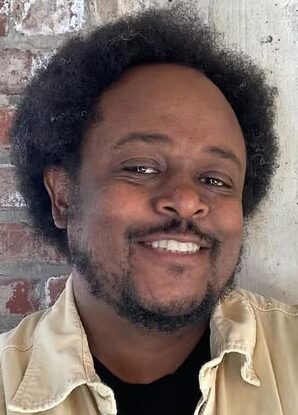 However, The Black Joy brand, newsletter, and two associated employees, will be moved to New Jersey Advance Media. Black Joy editor Ryan L. Nave (pictured) messaged Journal-isms, “It was the largest Reckon newsletter and has 11.5k Followers on IG and also maintains dedicated TikTok, FB and X accounts. I’m helping move Black Joy to New Jersey, where it’ll be overseen by Ronnie Agnew and his team. I’m not sure what I’m doing next.”
However, The Black Joy brand, newsletter, and two associated employees, will be moved to New Jersey Advance Media. Black Joy editor Ryan L. Nave (pictured) messaged Journal-isms, “It was the largest Reckon newsletter and has 11.5k Followers on IG and also maintains dedicated TikTok, FB and X accounts. I’m helping move Black Joy to New Jersey, where it’ll be overseen by Ronnie Agnew and his team. I’m not sure what I’m doing next.”
Agnew, general manager of NJ Advance Media, messaged Journal-isms, “Black Joy enjoys a healthy national audience, and the staff is committed to growing the brand’s national footprint.” He said they will not be required to move to New Jersey.
A tribute from Derrick Ward’s colleagues at WRC-TV in Washington. (Credit: YouTube)
D.C.’s Derrick Ward Dies, Reported on His Hometown
“Derrick Ward, a member of the News4 family, died Tuesday following complications from recent cardiac arrest,” Washington’s NBC-owned WRC-TV reported Wednesday. “He was 62.
“A native of the District of Columbia, Ward grew up in Marshall Heights and the H Street Corridor in Northeast. He lived through the 1968 riots and documented his experiences on News4 as part of the station’s 40th anniversary coverage. Ward attended HD Woodson High School and the University of Maryland.
“Ward’s journalism career began in radio. He worked for WPFW, WAMU and WTOP, covering major stories such as the Iran-Contra hearings, the Sept. 11 attack on the Pentagon, and the Washington-area sniper shootings. . . .”
Joel Oxley, president of radio’s WTOP News and Federal News Network, said, “Derrick Ward was truly an outstanding journalist. His passion and dedication shown through every day. But what set him apart was what a great person he was. His warmth and caring were evident at every turn. Everybody liked Derrick. I saw why right away. He’ll be missed tremendously.”
Short Takes
 A video of a Sirius XM conversation about the Journal-isms column “Black Journalists Will Figure in Carter’s Legacy” has been featured by YouTube, and as a result, had surpassed 9,700 views Monday morning. Posted Jan. 5 and featured by YouTube on Jan. 8, the conversation took place Jan. 3 on Sirius XM’s “Urban View Mornings,” the successor to “The Joe Madison Show.” Participants were Journal-isms columnist Richard Prince and the day’s co-hosts, Lamont King and Greg Carr, chair of Africana Studies at Howard University. View the video
A video of a Sirius XM conversation about the Journal-isms column “Black Journalists Will Figure in Carter’s Legacy” has been featured by YouTube, and as a result, had surpassed 9,700 views Monday morning. Posted Jan. 5 and featured by YouTube on Jan. 8, the conversation took place Jan. 3 on Sirius XM’s “Urban View Mornings,” the successor to “The Joe Madison Show.” Participants were Journal-isms columnist Richard Prince and the day’s co-hosts, Lamont King and Greg Carr, chair of Africana Studies at Howard University. View the video
- “Univision Portland will have its final newscasts on Tuesday, Dec. 31 after parent company Sinclair decided not to renew its affiliation contract with Univision,” the station announced on New Year’s Eve. “The KUNP channel will become an English-language channel. For 18 years, Univision Portland has been the only verified source of Spanish-language news for Latinos in Oregon and Southwest Washington.” The decision affects “around 500,000 Latinos in Oregon and southeastern Washington, creating a void between local government, regional leaders and the Hispanic community,” the announcement said.
- “NPR and 11 member stations have teamed up with the nonprofit news organization Religion News Service to boost coverage of religion,” Austin Fuller reported Jan. 6 for Current. “Two grants are helping fund the initiative. NPR is receiving a two-year, $900,000 grant from the Lilly Endowment. Meanwhile, RNS landed an Arthur Vining Davis Foundations grant for $300,000 over two years, according to publisher Deborah Caldwell.” In response to a question, NPR spokesperson isabel Lara said, “we have a diverse team, with member station reporters and RNS colleagues from a variety of racial, ethnic and religious backgrounds. Our stories, and the people we cover, have been intentionally inclusive,” but declined to name them.
- Opponents of net neutrality “won a significant victory when judges on the Sixth Circuit Court of Appeals ruled that the Federal Communications Commission didn’t have the right to impose such rules when it did so last year,” Mathew Ingram wrote Thursday for Columbia Journalisms Review. “Now critics say that the death of the rules could allow the internet to become distorted by partisan political and corporate interests. It could also make existing online even more difficult for news publishers and journalism in general. . . .”
 “American gymnast Simone Biles has added another title to her resume,” ABC News reported Jan. 2. “The 11-time Olympic medalist was named Thursday by Sports llustrated as its 2024 Sportsperson of the Year. The honor comes after a year in which Biles took the 2024 Paris Olympics by storm, adding four new medals to her collection in team, all-around, vault and floor exercise. After her performance in Paris, Biles, 27, is now tied for the second-most decorated female gymnast in Olympic history, according to the U.S. Olympic and Paralympic Committee. . . .”
“American gymnast Simone Biles has added another title to her resume,” ABC News reported Jan. 2. “The 11-time Olympic medalist was named Thursday by Sports llustrated as its 2024 Sportsperson of the Year. The honor comes after a year in which Biles took the 2024 Paris Olympics by storm, adding four new medals to her collection in team, all-around, vault and floor exercise. After her performance in Paris, Biles, 27, is now tied for the second-most decorated female gymnast in Olympic history, according to the U.S. Olympic and Paralympic Committee. . . .”
 “Television news reporter and anchor Sia Nyorkor (pictured) is returning to Cleveland,” Joey Morona reported Friday for cleveland.com. “The award-winning journalist, who spent nine years at WOIO Channel 19 before leaving in May, is joining WKYC Channel 3. Her first day is Monday, Jan. 13.” Nyorkor is parliamentarian for the National Association of Black Journalists.
“Television news reporter and anchor Sia Nyorkor (pictured) is returning to Cleveland,” Joey Morona reported Friday for cleveland.com. “The award-winning journalist, who spent nine years at WOIO Channel 19 before leaving in May, is joining WKYC Channel 3. Her first day is Monday, Jan. 13.” Nyorkor is parliamentarian for the National Association of Black Journalists.
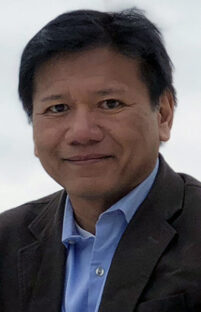 Bobby Caina Calvan (pictured), global news manager at the Associated Press, is joining the Dallas Morning News as the government accountability team’s new deputy editor, editors at the Morning News announced. At the AP, Calvan was “responsible for such things as story scheduling and planning, enforcing journalistic integrity and making sure the AP serves its members. He has extensive experience in statehouse and political reporting, producing watchdog journalism and covering elected officials and institutions of power,” they said. “He previously worked as the collaborations editor for the Center for Investigative Reporting and director of operations for the Fund for Investigative Journalism. Bobby also reported for the Boston Globe and Sacramento Bee. . . .”
Bobby Caina Calvan (pictured), global news manager at the Associated Press, is joining the Dallas Morning News as the government accountability team’s new deputy editor, editors at the Morning News announced. At the AP, Calvan was “responsible for such things as story scheduling and planning, enforcing journalistic integrity and making sure the AP serves its members. He has extensive experience in statehouse and political reporting, producing watchdog journalism and covering elected officials and institutions of power,” they said. “He previously worked as the collaborations editor for the Center for Investigative Reporting and director of operations for the Fund for Investigative Journalism. Bobby also reported for the Boston Globe and Sacramento Bee. . . .”
 “Angela Pace (pictured), WBNS-10TV’s longtime director of community affairs, said in an interview Friday that she is leaving the station in January as her station’s parent company is eliminating her department,” Nathan Hart reported Jan. 3, updated Jan. 6, for the Columbus Dispatch. “Tegna Inc., owner of 10TV, a CBS affiliate, is eliminating marketing and community affairs departments across its entire network of some 60 stations, Pace said. Her last day at 10TV will be Jan. 17. . . .”
“Angela Pace (pictured), WBNS-10TV’s longtime director of community affairs, said in an interview Friday that she is leaving the station in January as her station’s parent company is eliminating her department,” Nathan Hart reported Jan. 3, updated Jan. 6, for the Columbus Dispatch. “Tegna Inc., owner of 10TV, a CBS affiliate, is eliminating marketing and community affairs departments across its entire network of some 60 stations, Pace said. Her last day at 10TV will be Jan. 17. . . .”
 Francine Pope Huff (pictured), formerly Knight Chair for Student Achievement at Florida A&M University and a bureau chief for The Wall Street Journal, has been promoted to vice president of programs at Solutions Journalism Network. “I joined SJN in 2021 because of the organization’s commitment to leading a global shift in journalism that helps journalists report on how communities are solving problems,” she said on LinkedIn.
Francine Pope Huff (pictured), formerly Knight Chair for Student Achievement at Florida A&M University and a bureau chief for The Wall Street Journal, has been promoted to vice president of programs at Solutions Journalism Network. “I joined SJN in 2021 because of the organization’s commitment to leading a global shift in journalism that helps journalists report on how communities are solving problems,” she said on LinkedIn.
- “CatchLight, a San Francisco-based visual media organization that seeks to provide inclusive, accurate, and locally contextualized information to the public through accessible and high-quality visual journalism . . . will fill the gap in underserved markets to reach local audiences wherever they consume their news by placing full-time photojournalists with salary subsidies in select newsrooms nationwide,” the organization announced Thursday. The initiative is undertaken with Report for America. Fellowship application deadline is Feb. 3.
- Military Veterans in Journalism will host its 2025 convention on July 8 at the Hilton Chicago in downtown Chicago, alongside the National Association of Hispanic Journalists annual conference from July 9 to 12, the organizations announced Wednesday. More than a third of U.S. active duty service members are Hispanic, they said.
 Tina Griego and Tracy Jan (pictured) will join ProPublica as senior editors working with the Local Reporting Network, ProPublica announced Wednesday. Jan becomes one of the latest to leave the Washington Post, where she was a deputy health and science editor, amid its internal turmoil. At the Colorado News Initiative, Griego “helped lead efforts by Black, Latino, Indigenous and Asian American and Native Hawaiian and Pacific Islander community members and journalists to improve local news coverage of these groups. . . . Griego will launch the network’s sustainability desk, a new program to support the work of former partner newsrooms and reporters; she starts on Jan. 14. Jan will work with newsrooms on sustained LRN investigative projects; she starts on Jan. 27.”
Tina Griego and Tracy Jan (pictured) will join ProPublica as senior editors working with the Local Reporting Network, ProPublica announced Wednesday. Jan becomes one of the latest to leave the Washington Post, where she was a deputy health and science editor, amid its internal turmoil. At the Colorado News Initiative, Griego “helped lead efforts by Black, Latino, Indigenous and Asian American and Native Hawaiian and Pacific Islander community members and journalists to improve local news coverage of these groups. . . . Griego will launch the network’s sustainability desk, a new program to support the work of former partner newsrooms and reporters; she starts on Jan. 14. Jan will work with newsrooms on sustained LRN investigative projects; she starts on Jan. 27.”
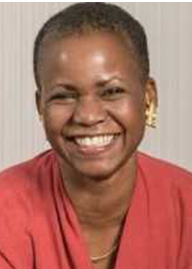 “After months of deliberation and soul-searching, I have decided to step away from leading the audio division at Slate,” Alicia Montgomery (pictured) posted Saturday on LinkedIn. “I’ll end my time as a Slatester on Friday, January 17th. This is a moment of great change and challenge in our profession and our country, and I plan to spend the coming days exploring where I can best serve, in and outside of journalism. . . .” Montgomery has been executive producer, podcasts at Slate and senior supervising editor/producer, “Morning Edition” at NPR, among other roles in public broadcasting.
“After months of deliberation and soul-searching, I have decided to step away from leading the audio division at Slate,” Alicia Montgomery (pictured) posted Saturday on LinkedIn. “I’ll end my time as a Slatester on Friday, January 17th. This is a moment of great change and challenge in our profession and our country, and I plan to spend the coming days exploring where I can best serve, in and outside of journalism. . . .” Montgomery has been executive producer, podcasts at Slate and senior supervising editor/producer, “Morning Edition” at NPR, among other roles in public broadcasting.
- Black men are the focus of at least two media projects this week. On Monday, online and broadcast platforms debut “Road Scholars,” a production of Investigative Media Group, Inc. in association with The WNET Group’s Chasing the Dream initiative. “In 2009, twelve at-risk Black teenage boys traveled the country to interview Black men from all walks of life, hoping the lessons they learned might keep them from the streets. More than 14 years later, they’re coming of age in a changing America, and they want to know how they can avoid becoming another statistic.” In New York, author and journalist Kevin Powell debuts as a film director Wednesday with “When We Free the World,” which he calls “a deep-dive about manhood, featuring 70 male voices of various identities, from teenagers to 90-somethings, 5 generations.” Trailer.
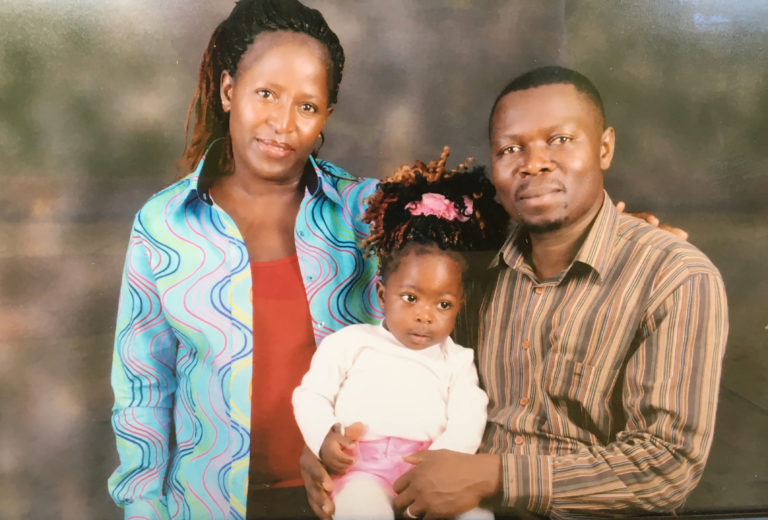
From the series. (Credit: PBS News Hour)
- Is U.S. foreign aid for sub-Saharan Africa — including that for health and for farmers — being spent effectively?No, concluded a series last week on the “PBS NewsHour,” “Agents for Change,” reported by Fred de Sam Lazaro. A chorus of critics blames what some have called the “aid industrial complex,” he reported on Tuesday. On Wednesday, de Sam Lazaro reported critics’ complaints that the system used by the U.S. Agency for International Development leaves out many deserving locally led startups and non-government groups. On Thursday, he looked at two startups in Ghana. “Critics say most U.S. aid dollars are going to U.S.-based companies with little involvement by locally-led groups closest to the problem,,” the show summarized.
- Reporters Without Borders paid “tribute to the journalists and cartoonists killed and injured in the terrorist attack on the French satirical weekly Charlie Hebdo on 7 January 2015 and points out that, ten years later, cartoonists and their journalistic freedom still need protecting.” It listed “20 emblematic cases from the past ten years, ranging from imprisonment for ‘state subversion’ in China to intimidation in Nicaragua and contempt of court charges in India, highlight the scale of the threats and harassment to which media satirists are subjected throughout the world. . .”
- “In a year when an incredibly high number of journalists lost their lives in conflict zones – Gaza in particular – Latin American countries still continue to land on lists of the most lethal places for the press,” Teresa Mioli reported Dec. 18 for LatAm Journalism Review. “Mexico is on RSF’s list of the top three most dangerous countries and territories for journalists this year, with at least five journalists killed there. In Colombia, RSF reports the killings of at least two journalists, which ranks the country sixth on the organization’s list. And in Honduras, at least one journalist was killed for his work. . . .”
pingo subscribe at no cost, please send an email to journal-isms+subscribe@groups.io and say who you are.
Facebook users: “Like” “Richard Prince’s Journal-isms” on Facebook.
Follow Richard Prince on Twitter @princeeditor
Richard Prince’s Journal-isms originates from Washington. It began in print before most of us knew what the internet was, and it would like to be referred to as a “column.” Any views expressed in the column are those of the person or organization quoted and not those of any other entity. Send tips, comments and concerns to Richard Prince at journal-isms+owner@
View previous columns (after Feb. 13, 2016).
View previous columns (before Feb. 13, 2016)
- Book Notes: Is Taking a Knee Really All That? (Dec. 20, 2018)
- Book Notes: Challenging ’45’ and Proudly Telling the Story (Dec. 18, 2018)
- Book Notes: Get Down With the Legends! (Dec. 11, 2018)
- Journalist Richard Prince w/Joe Madison (Sirius XM, April 18, 2018) (podcast)
- Richard Prince (journalist) (Wikipedia entry)
- February 2018 Podcast: Richard “Dick” Prince on the need for newsroom diversity (Gabriel Greschler, Student Press Law Center, Feb. 26, 2018)
- An advocate for diversity in the media is still pressing for representation, (Courtland Milloy, Washington Post, Nov. 28, 2017)
- Morgan Global Journalism Review: Journal-isms Journeys On (Aug. 31, 2017)
- Journal-isms’ Richard Prince Wants Your Ideas (FishbowlDC, Feb. 26, 2016)
- Richard Prince with Charlayne Hunter-Gault, “PBS NewsHour,” “What stagnant diversity means for America’s newsrooms” (Dec. 15, 2015)
- Book Notes: Journalists Follow Their Passions
- Book Notes: Journalists Who Rocked Their World

